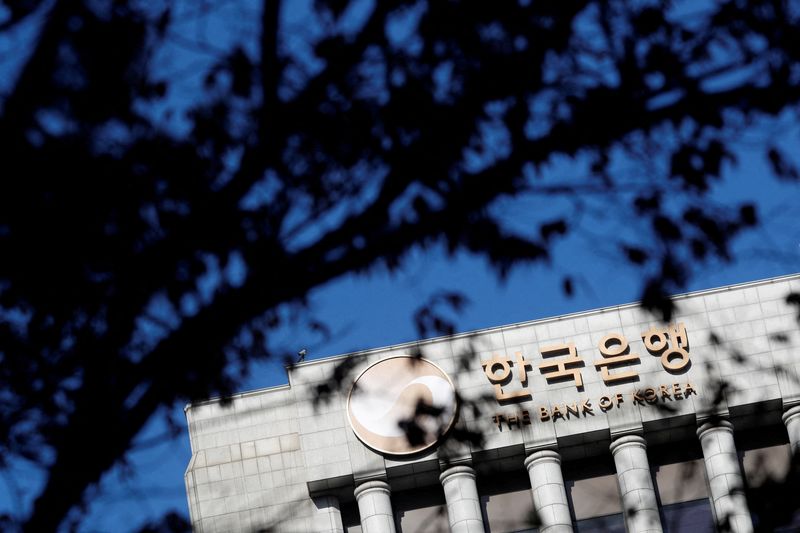By Cynthia Kim and Jihoon Lee
SEOUL (Reuters) -South Korea's central bank cut interest rates for the first time since mid-2020 on Friday and flagged there was room to reduce further, giving some relief to households that have faced the highest borrowing costs in 16 years.
The Bank of Korea (BOK) lowered its benchmark interest rate by a quarter percentage point to 3.25% at its monetary policy review, an outcome expected by 34 of 37 economists polled by Reuters.
BOK Governor Rhee Chang-yong said Friday's decision, which board members backed 6-1, could be "interpreted as a hawkish cut, as financial stability will remain an important policy consideration even as we make this reduction."
"From where we stand now, (the policy interest rate) sits above our neutral interest level by any model, so there is room for further reductions," he said at a press conference after the rate decision.
Rhee offered no specific guidance when asked if the bank will further cut interest rates when it next reviews policy on Nov. 28, but said for the next three months, six out of seven board members favour holding rates steady.
The won gained against the dollar while policy-sensitive three-year treasury bond futures extended gains, rising as much as 0.17 point to 105.96.
The rate cut aligns the BOK with central banks in the U.S., U.K., European Union and Canada, which have all embarked on an easing cycle as the global economy shows signs of cooling and inflation slows.
"The moderate growth trend will continue, but uncertainties regarding the future path of output growth have heightened," the bank said in a statement.
Gross domestic product contracted in the second quarter, private consumption is falling and headline inflation in September undershot the bank's 2% target.
Concerns over Seoul's hot housing markets and households ramping up debt had been delaying the bank's policy pivot, but a cooling in transactions in the last few weeks has given policymakers some room to focus on driving growth.

The Bank of Korea will go slow on any further easing in borrowing costs as restraining property prices and an increase in household debt remain important considerations, analysts said.
"The BOK seems to be well aware of the risks of rate cuts in the face of rising housing debt. Therefore, it will be a while before the BoK takes further easing steps," ING senior economist Kang Min-joo said in a note to clients. She expects the bank to cut rates again in March 2025.